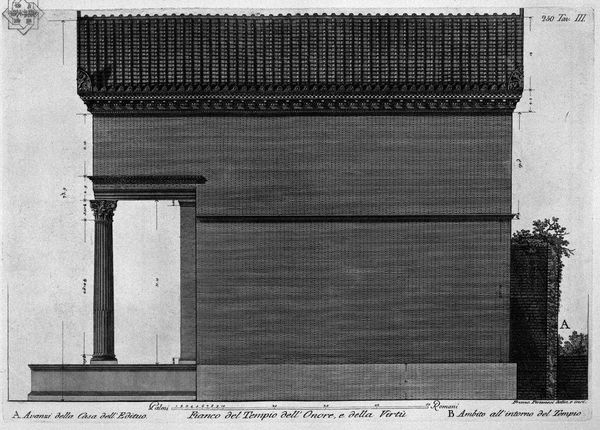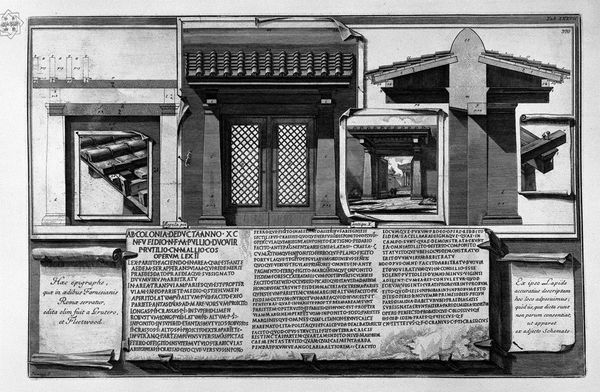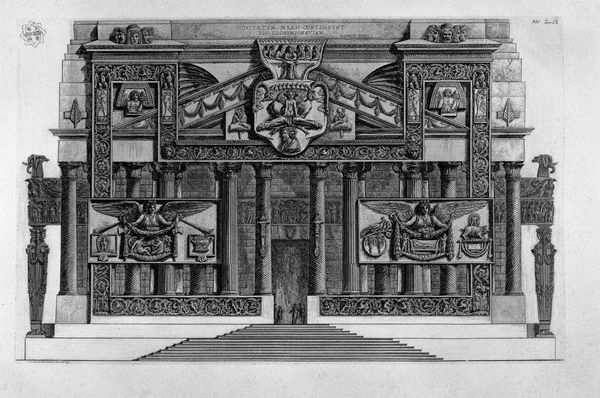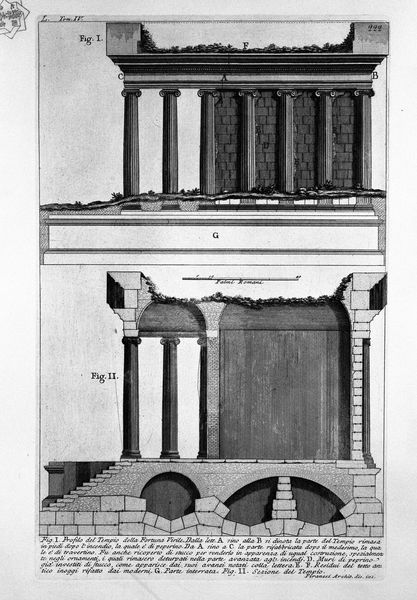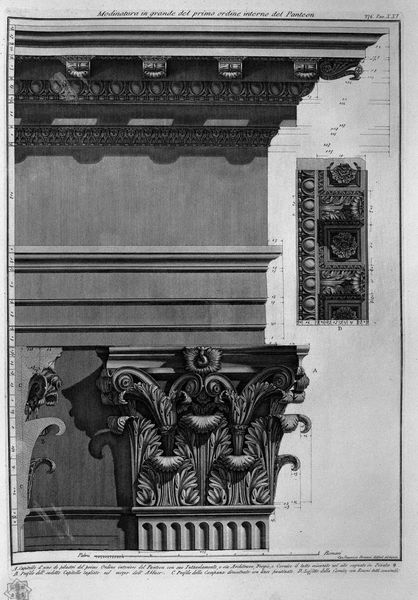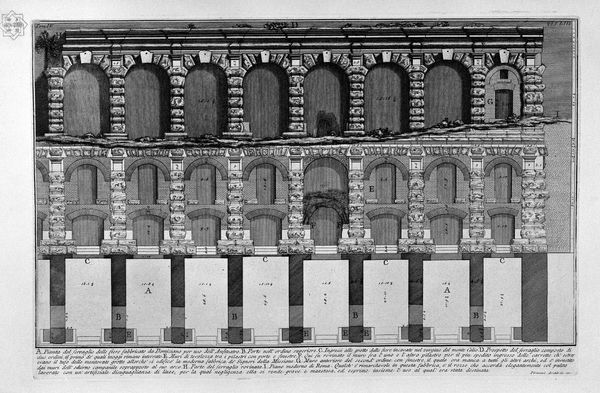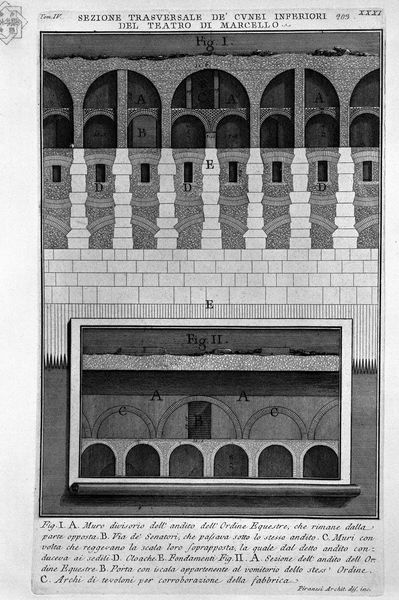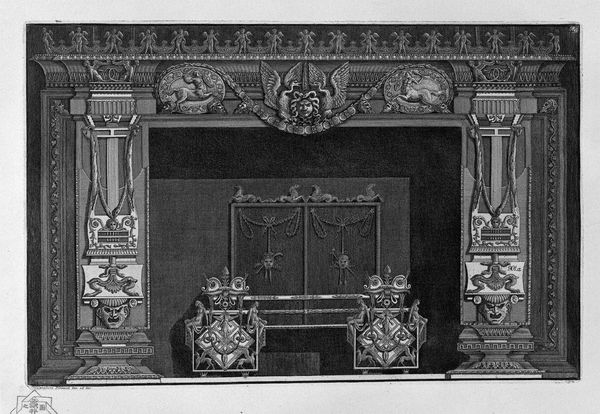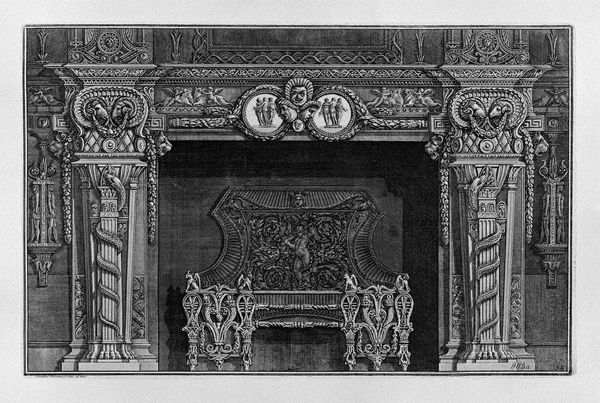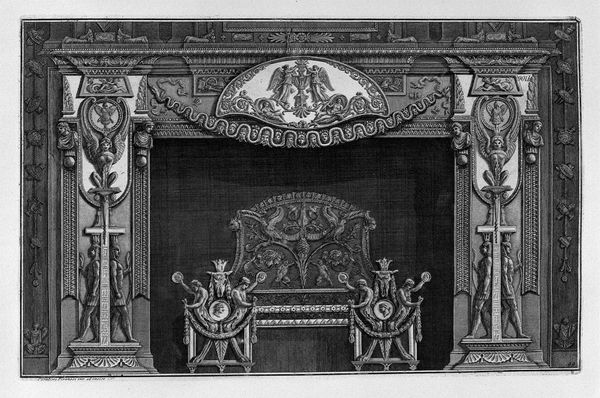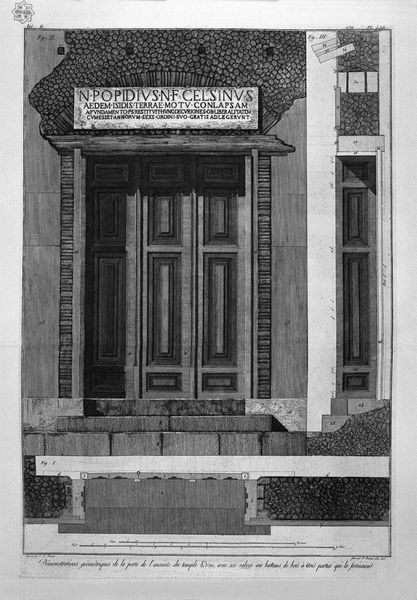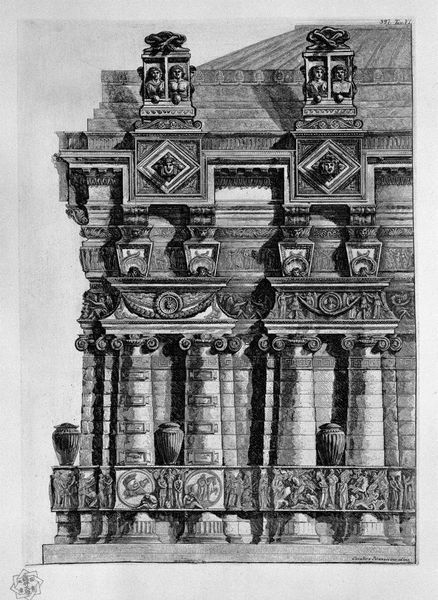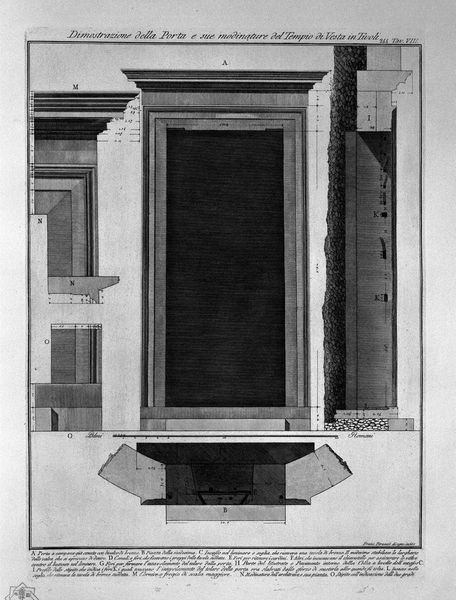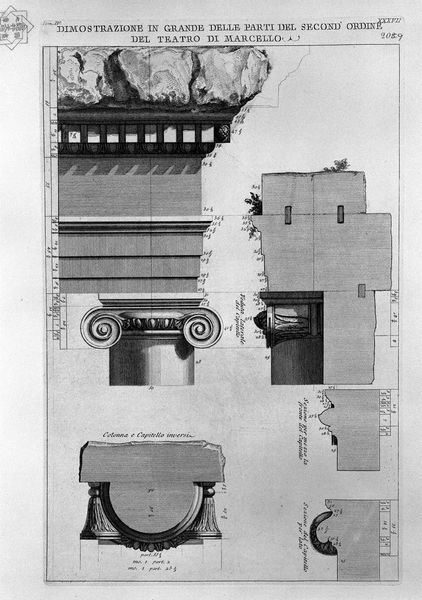
drawing, etching, engraving, architecture
#
drawing
#
black and white photography
#
etching
#
sculpture
#
perspective
#
black and white format
#
historic architecture
#
romanesque
#
black and white
#
monochrome photography
#
history-painting
#
engraving
#
architecture
#
historical building
#
monochrome
Copyright: Public domain
Editor: We're looking at "Cutaway of the Interior for long these days, and his Porch," an etching by Giovanni Battista Piranesi. The architectural details are so precise and intricate, it almost feels like a stage set. What formal elements stand out to you? Curator: The arresting perspective and use of monochrome immediately demand attention. Note the calculated arrangement of shapes and textures: the rigid geometry of the coffered ceiling contrasts sharply with the smooth surfaces of the walls below, dissected and presented to the viewer through a rational cross-section. Consider how light interacts with the engraved lines to define form. The variations in shading suggest the modulation of surfaces in space. Does this articulation contribute to our reading of this drawing as either archaeological record or theatrical artifice? Editor: That's a good question. It feels like both at once, documentary but also imagined. What does that tension create for the viewer? Curator: This oscillation encourages a constant reevaluation of depth and scale within the composition, which are defined both by form and tonality. It complicates any simple reading. Are we presented with objective documentation of the object, or are we confronted with a personal expression through the structural elements of the etching? Editor: So the technique itself, the meticulous rendering of light and shadow, becomes part of the artwork's meaning. It's a fascinating piece to consider from that viewpoint. Curator: Precisely. Considering these internal, formal qualities reveals that Piranesi's true subject is not architecture itself but, perhaps, visuality.
Comments
No comments
Be the first to comment and join the conversation on the ultimate creative platform.
